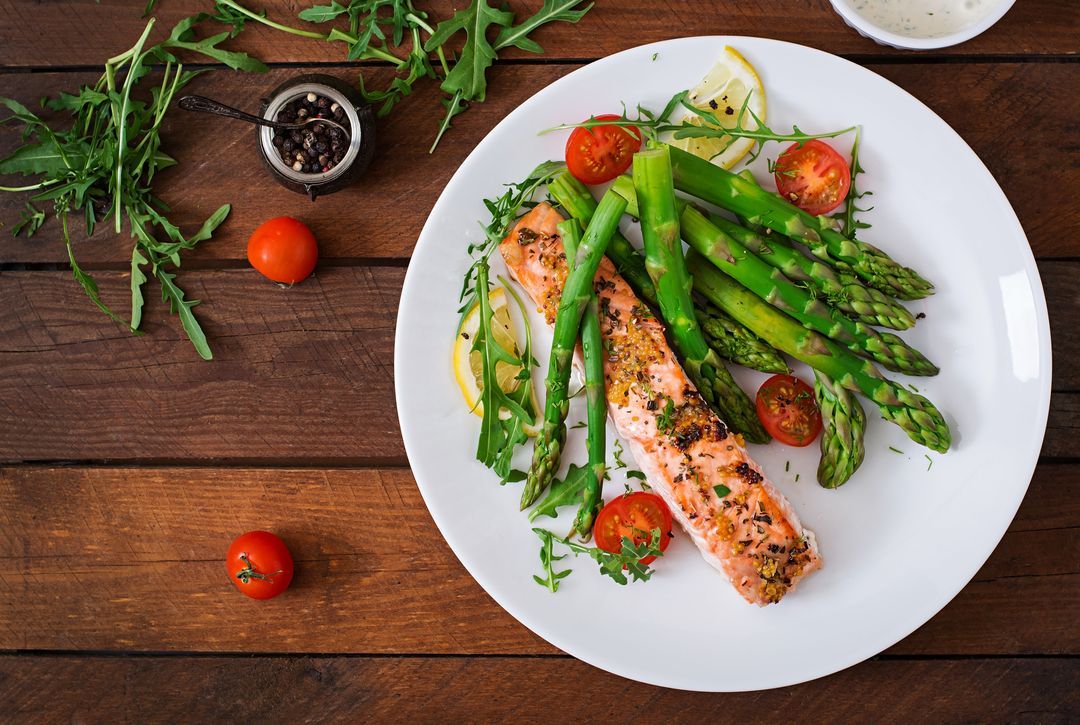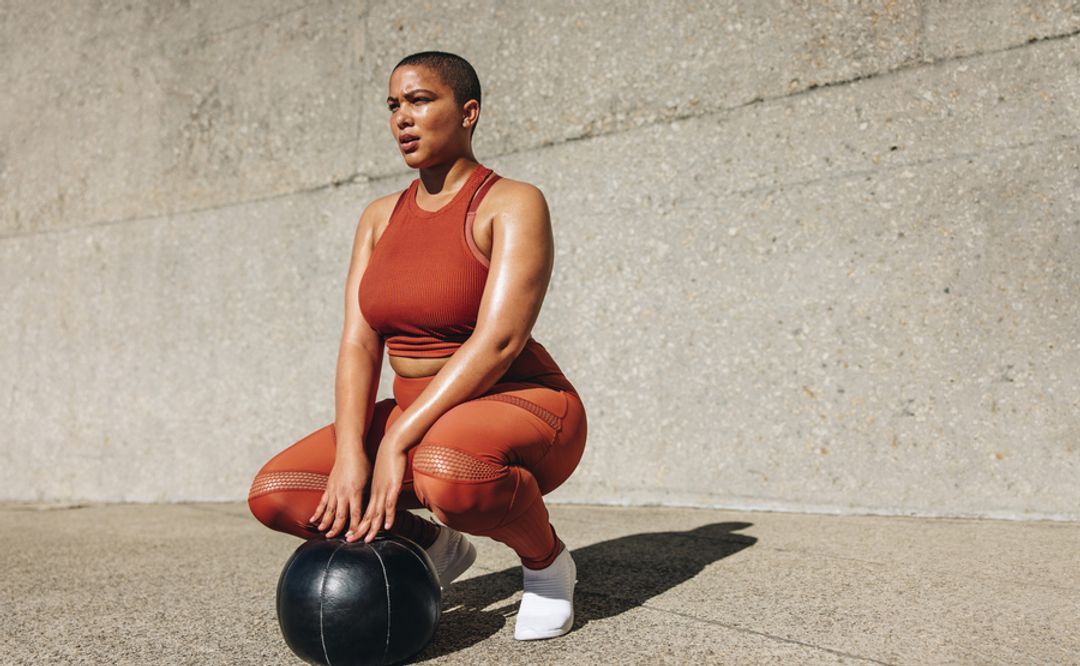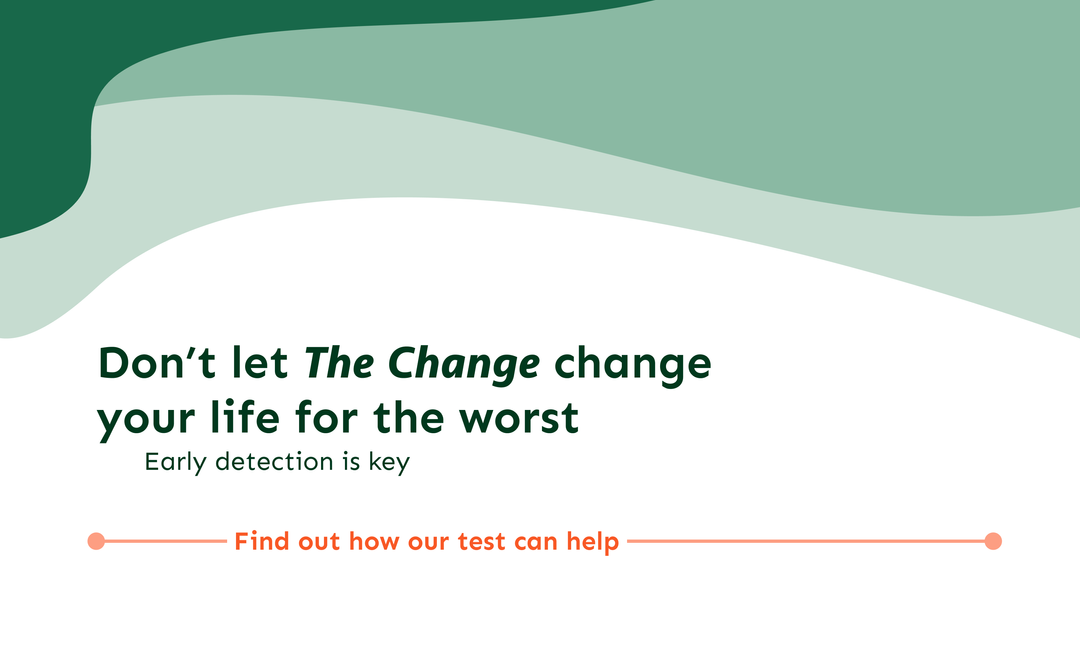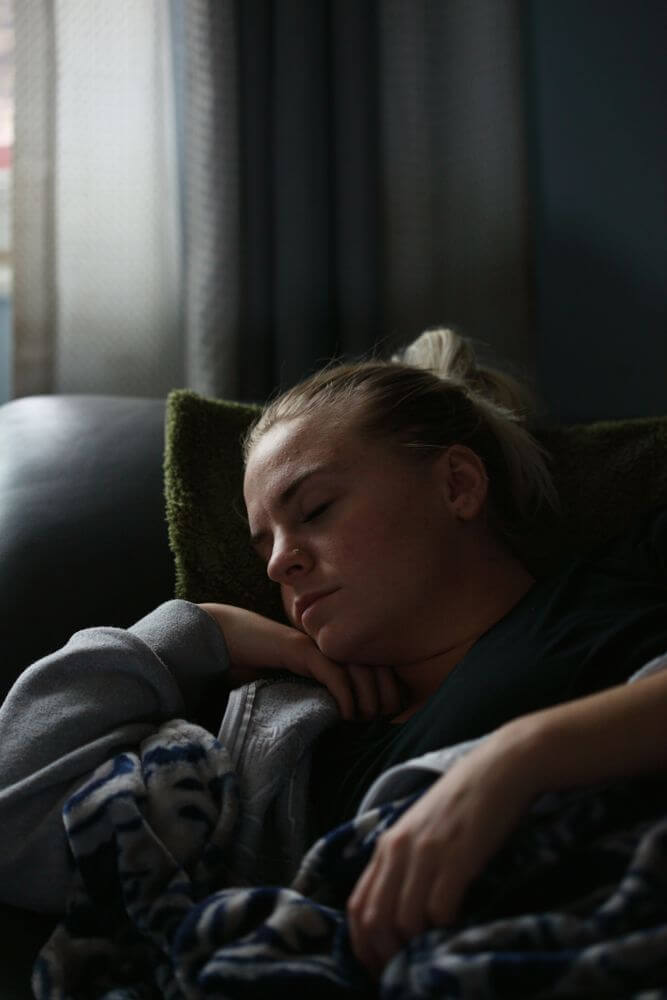How to Get Rid of Menopause Belly: Complete Guide

Learn how to combat menopause belly and regain confidence. Read our guide on how to get rid of menopause belly and say goodbye to belly fat!
Summary
- Even if you don’t put on any weight during menopause, you may find yourself with a bit of a belly due to the way the drop in estrogen affects fat distribution.
- The weight that starts to accumulate around your middle shouldn’t just be ignored and accepted as part of ageing - research has shown that extra belly fat is linked to a higher risk of developing cardiovascular disease.
- Some of the many ways you can adjust your lifestyle to get rid of menopause belly include eating a balanced diet, watching your portions, doing a mixture of moderate and vigorous exercise, improving your sleeping habits and managing stress levels.
- When it comes to losing excess menopause weight around the tummy, you should stay kind and patient with yourself. Your aim is for a slow but steady reduction in fat.
Introduction
Weight gain can feel like an inevitable part of menopause, but the truth is, it doesn't have to be.
Some women may be prone to put on weight during and after menopause. Finding out what feels right and healthy for you and incorporating that into your lifestyle can help with menopausal weight gain prevention.
The GlycanAge test can help you - it is the only biological age test that accurately measures your body's response to lifestyle changes.
We have put together a simple lifestyle guide to help you get started on your own wellness journey, tackling a common problem many women feel uncomfortable with - their menopause belly.
What is Menopause Belly?
A lot of women experience weight gain during menopause, commonly referred to as menopause belly.
This happens because lower levels of hormones lead to a loss in muscle mass, which is often replaced by fat tissue.
The most common area of muscle loss is around the midsection, so fatty tissue tends to accumulate there, leading to menopause weight gain.
Common Causes of Menopause Belly
Different factors can influence whether you’ll develop a menopausal belly.
Genetics
Genetics are a big factor.
Suppose the women in your family carry more weight in the midsection, especially after menopause. If that is true, there is a higher likelihood that you will, too.
But genetics don’t necessarily have to be your destiny. There are ways you can get rid of your menopause belly even if it’s genetically predisposed.
Diet and Lifestyle Choices

Of course, we all know that our diets have huge effects on our weight. But even if you never had a belly before menopause, it might be time to change your diet.
With different life stages, you’ll need to optimise your diet and lifestyle. Think of menopause as a way to get to know yourself again and make sure you’re listening to your body as you try our different diets and workout routines.
The Health Risks Associated with Menopause Belly Fat
We do not mean to scare you at all, but it’s important to mention that there are some health risks associated with the menopause belly.
Heart disease
Obesity can lead to increased levels of bad cholesterol, which increases the risk of heart disease.
Weight gain can also increase your blood pressure. With more weight, your body will need more blood to supply oxygen as well as more pressure to move the blood to needed parts of the body.
Over time, high blood pressure could cause a heart attack, so it’s important to treat it on time.
Breast cancer

Unfortunately, your risk of breast cancer might increase if you’re overweight once you enter menopause.
Studies show that in a group of 100 women in a healthy weight range, 9 will probably develop breast cancer over the age of 50, but the number goes up to 12 in a group of 100 obese women.
Diabetes
Excessive weight gain could lead to developing type 2 diabetes. There are other factors as well, like family history, stress, diet, exercise and gut health.
Healthy Lifestyle Tips To Target Menopause Belly
How your weight (and fat tissue) is distributed in the body changes when you enter (peri)menopause. In addition, your metabolism tends to slow down, making it challenging to lose weight, particularly around your belly. Belly fat is not only frustrating, but it may also be dangerous to health.
For additional insights into managing menopause-related weight gain, consider exploring our article on how to prevent menopause weight gain.
How to minimise that risk and get belly fat under control?
Eat a balanced diet

Some research suggests that by the time you hit menopause, your body could burn a couple of hundred fewer calories a day which means extra weight can build up quickly if you don't keep an eye on your calorie intake.
If possible, prepare meals at home containing nutritious ingredients, such as green leafy vegetables, fatty fish, whole grains, and fruits like dark berries, in order to achieve a balanced menopause diet.
It is also important to understand that not all nutrients are created equal. Some nutrition experts state that a steady diet of heavily processed or refined carbohydrates, such as bread and pasta, can contribute to excess belly fat.
The British Journal of Nutrition published a paper that found that a restricted carbohydrate diet may decrease the risk of post-menopausal weight gain.
If you are eating fat-rich foods, it is important to include a variety of different fats, especially the healthier ones (i.e. unsaturated fats) that you will find in foods such as olives, nuts, avocado and fish, like salmon and sardines.
Careful portion control

Portion control is important in managing your calorie intake. We're not saying you need to count every blueberry you drop into your morning porridge, but if you tend to eat too much, your brain may need retraining into seeing smaller portion sizes as being satisfying.
A good way of controlling your portion sizes is using a smaller plate - that way you will not be able to overload it with food. This will help stop you from overloading your plate with food. If you struggle to gauge suitable portion sizes, try using measuring cups. You don't need to buy a special container for this, as a simple tea cup will do.
Another good way to ensure you are not overeating is to stay away from leftovers. It can be easy to pick at food, especially if you are in the mindset that wasting food is bad. But try to avoid the temptation to finish off your family member's meals after they've finished, even when there is not enough left for a whole portion.
Exercise more frequently

To help target your menopausal belly, you will need to get into a routine that includes a mix of moderate and vigorous exercise. Try to find activities you enjoy and try out aerobic exercises like cycling, swimming, running, or even walking, and include some resistance or strength training too.
You should also try to include some high-intensity interval training (HIIT) in your menopause exercise regime. This involves doing moderate levels of exercise (such as your standard jog) with some high-intensity activities (like sprinting up a hill).
HIIT has been found to have some fantastic benefits for menopausal women, including improving strength, energy levels, and overall cardiovascular and metabolic health.
The Centers for Disease Control and Prevention recommends that adults do at least 150 minutes of moderate-intensity aerobic exercise along with two or more days a week with muscle-strengthening sessions. The muscle-strengthening activities should target all the major muscle groups, including the arms, shoulders, back, chest, abdomen, hips, and legs.
However, the exercises we may have done in our younger years will differ from those we do when we are middle-aged. You will need to adjust your exercise routines to match your fitness level. Not having a membership to a gym is no excuse, as there are plenty of effective workouts which can be done at home or outdoors at your local park. Many parks in the UK now have outdoor community gyms, which can be great for targeting different muscle groups.
Improve sleep quality

A common symptom of menopause is trouble sleeping (insomnia). Not getting adequate sleep may exacerbate weight gain around the belly area. Inadequate sleep leads to a hormonal imbalance affecting hunger and satiety hormones, ghrelin and leptin, respectively, causing a shift towards increased appetite.
You should ideally aim to get between 7 and 9 hours of sleep per night - the optimal amount will differ from person to person.
If you are struggling with sleep, you can try a few tricks, such as keeping your bedroom cool to help manage hot flashes and night sweats. You should also try to stay away from glowing screens for at least an hour before you would like to sleep. If you're just naturally a night owl, try to brush your teeth earlier in the evening to stop you from eating late at night and having your sleep interrupted.
Tackle stress levels

As part of our "fight or flight" response, cortisol is released when stressed to give your body a natural energy boost. When you feel stress building up, it is a great time to get your exercise session in and burn away some fat tissue.
Cortisol, which is a stress hormone, can work here to your advantage as it helps the body convert protein, fat and carbohydrates to usable energy.
However, if your cortisol levels are constantly high because of too much stress (chronic stress), you put yourself at risk of some serious health issues.
You can try various relaxation techniques to help manage stress (and potentially belly fat). Some proven methods for reducing stress include:
- Exercise
- Guided meditation and deep breathing
- Calm visualisation
- Essential oils to induce relaxation
One study published in the Environment and Behaviour journal found that for some people, just looking at images of trees helped them feel less stressed, so try going outside and spending some time in nature.
If you're more of an indoor urban woman or don't have access to green spaces, there are some great meditation apps that you may find helpful - such as Headspace and Calm.
In addition, if you usually reach for a glass of wine in the evenings as a coping mechanism for stress, it might be good to reconsider that strategy. Though red wine is, for instance, probably the best choice of alcohol due to its antioxidant properties, too much wine is neither good for your health nor your waistline.
Natural supplements

There are some natural supplements you could take to help you avoid weight gain.
The most popular is green tea extract, rich in caffeine and EGCG, which helps you burn fat more easily.
Vitamin B3 is another great choice as it can help the body break down carbohydrates and convert them into energy.
Hormone therapy
HRT can help you alleviate symptoms of menopause, such as night sweats, mood swings and the hated menopause belly.
Even though HRT doesn’t make you lose fat, it does promote your metabolism, help you gain muscle mass, improve your energy levels and help you sleep better, which all assist in keeping your weight down.
Frequently Asked Questions (FAQs)
Why does menopause give you a big belly?
Menopause can cause women to become more prone to developing a belly if their lifestyle is not adjusted appropriately to reflect the change in hormones and the ageing body. The decreasing levels of oestrogen can influence where fat is distributed in the body and so even women who were previously slim, might find that they are putting on belly fat more easily.
How can I lose my menopause belly?
Choosing healthier food options, incorporating some exercise into your routine and looking after your mental health all help. Our GlycanAge team is also here to support you through one of our GlycanAge plans.
What supplements help with a hormonal belly?
Unfortunately, there are no magic supplements available.
Does menopause weight gain go away?
When you reach menopause and are finally period-free, any menopause weight gain you may have put on will sadly not go away on its own. Weight gain during menopause is a huge pain point for many women so we have written an article all about it. Go check it out - Top Tips On How To Prevent Weight Gain During Menopause.
What is the best diet for a menopausal woman?
There is no perfect or best diet for women to follow during menopause as we are all unique and have different needs. Menopause is a time of transition, which also means welcoming a new phase of life and making some lifestyle adjustments to reflect the changes.
When it comes to diet, it is a good idea to eat plenty of fruit and vegetables. Your bones may also weaken, so try to eat foods rich in vitamin C, like milk, yoghurt, and kale. This will ensure you have the energy to exercise and burn away that menopause belly.



